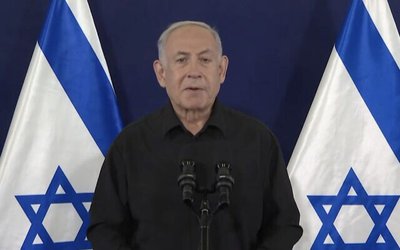
This year, we commemorate the 10th anniversary of the Human Rights Council as well as the golden jubilee of the adoption of the International Covenants on Civil and Political Rights and on Economic, Social and Cultural Rights.
As UN Secretary-General Ban Ki-moon made clear at the Council on Monday, the links between the three pillars of the UN – peace and security, development and human rights – have never been clearer or more relevant in our connected world. When our leaders adopted the SDGs last September in New York, this was a manifestation of the close connection between sustainable development and human rights.
And when it comes to the link between peace and human rights, we are reminded of the latest annual report by High Commissioner Zeid. It points out that a growing number of conflicts and situations of violence are often the results of deep-rooted discrimination and long-standing patterns of exclusion and lack of freedoms.
Over the past decade, the Human Rights Council has been a beacon of hope and a bulwark for the oppressed around the world in defending and promoting human dignity, whoever and wherever they are.
On North Korea, Syria and Libya, the Commissions of Inquiry set up by the Council were instrumental in revealing abuses and recommending remedies. On Boko Haram’s atrocities and the situation in Burundi too, the Council’s special sessions were timely and appropriate.
On sexual violence against women during times of conflict, both in the past and in the present, the Council and its predecessor, as well as High Commissioners for Human Rights have played a key role in awakening the conscience of the international community, on one of the most inhumane atrocities. As a member of the Council and as a champion of the Preventing Sexual Violence in Conflict Initiative, we will continue to contribute to such efforts on the bilateral, regional and global fronts, in order to heal the wounds of the victims and to prevent such tragedies from recurring in the future.
However, we know there are still many dark corners in our world where violations to human rights and human dignity continue unabated. In Syria, the massive civilian casualties and refugees caused by the upsurge of civil conflicts and violent extremism are now regarded as one of the biggest humanitarian catastrophes since the end of the Second World War.
Indeed, we are witnessing how the insecurity in such fragile or failed states become incubators for humanitarian crises and human rights abuses, from displacement and hunger to child soldiers and human trafficking.
The deliberate starvation in Madaya, Syria, is one such truly shocking instance. So I welcome the International Syria Support Group’s recent agreement on the cessation of hostilities and humanitarian assistance, and hope it will be fully implemented.
Even as the international community is sparing no efforts to promote human rights and humanitarianism, we have in our midst a human rights black hole, namely North Korea.
Two years ago, the Commission of Inquiry (COI) report came to a clear conclusion, which I quote, “systematic, widespread and gross human rights violations have been and are being committed by the DPRK, its institutions and officials. In many instances, the violations of human rights found by the commission constitute crimes against humanity,” unquote.
The COI report unambiguously states that North Korea, “a totalitarian state that does not have any parallel in the contemporary world,” has manifestly failed to protect its people from crimes against humanity, and urged the international community to accept the responsibility to protect (R2P) North Korean citizens.
I believe that we, the international community, should take heed of the COI’s powerful message and take action.
In the wake of the report, for two consecutive years, both the UN Human Rights Council and the General Assembly adopted robust resolutions on the human rights situation in North Korea. Both in 2014 and 2015, the Security Council put this issue on its agenda and held serious discussions.
Already, the OHCHR Office Seoul was opened last June to implement the COI’s recommendations. This is an important first step. As time goes by, it will be seen as a key vehicle for improving human rights in North Korea.
And now, more than ever, the international community is being warned of how the worsening human rights situation in North Korea poses a threat to peace and security. So, in a follow-up to its discussions on North Korea’s human rights situation last year, the new UN Security Council resolution, due to be adopted in a few hours’ time in New York is going to express for the first time its deep concern on the grave hardship of North Korean citizens, whose basic needs are not being met.
Sadly enough, one of the poorest countries in the world is diverting scarce economic resources for WMD development and other military purposes. And it’s only the North Korean people who have to suffer and bear the brunt of its consequences.
And even as I speak, many North Korean escapees are risking their lives in search of freedom and human dignity. More than any number of words, this grim reality irrefutably reveals the cruel nature of the regime and the oppressive human rights situation in North Korea. If North Korea continues to fail its responsibility to protect its people, it should bear the full consequences of this.
We live in “an age of accountability.” We hear a growing number of voices calling for accountability for the human rights abuses. Last month, the Special Rapporteur on North Korea’s human rights situation, Mr. Darusman, submitted his final report with various proposals, especially those on ensuring accountability.
One of the valuable contributions made by Special Rapporteur Darusman is his focus on what he calls North Korea’s state-sponsored forced labor abroad. He disclosed how the laborers are working in harsh conditions, with the lion’s share of their wages taken away by the regime, and urged the international community to take action.
This call was soon echoed by the European Parliament when it passed a timelyresolution on North Korea’s forced laboron the 21st of January of this year. This resolution urges North Korea to quote, “stop its forced labor program in other countries,” and demands that “the international community take concrete action to end the impunity” of “those most responsible for the crimes against humanity committed in the DPRK,” unquote.
On our part, we appreciate the dedication of Special Rapporteur Darusman over the past six years as well as the European Parliament’s efforts. The National Assembly in Korea too will soon pass the North Korean Human Rights Act, which will enable us to take further measures to improve the human rights for North Koreans.
I believe that now is the time for the international community and the UN’s human rights mechanisms to redouble their efforts to improve the human rights situation in North Korea.
There have been ups and downs in history, but in the long run it has been the progress of freedom and human rights.
From peacekeeping, combating climate change and sustainable development to food, energy, public health and emergency relief, everything we in the international community do has a human face. The Human Rights Council, under the able leadership of the President, can play a key role in the mainstreaming of human rights in all aspects of the UN’s work.
So, I truly hope that all of us here will work with and through the Human Rights Council to enhance the happiness of the global community, so that every one of our human family, without exception, will enjoy their inalienable rights, freedom and human dignity.
Excerpts of the statement delivered by Yun Byung-se Minister of Foreign Affairs Republic of Korea at Conference on Disarmament, UNHRC Session in Geneva
- TANAHU HYDROPOWER PROEJCT: A Significant Achievement
- Apr 15, 2024
- AMBASSADOR HANAN GODAR: Sharing Pain With A Nepali Family
- Mar 30, 2024
- VISIT OF KfW AND EIB TO NEPAL : Mission Matters
- Mar 25, 2024
- NEPAL BRITAIN SOCIETY: Pratima Pande's Leadership
- Mar 24, 2024
- NEPAL ARMY DAY: Time To Recall Glory
- Mar 15, 2024















